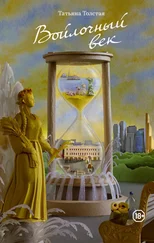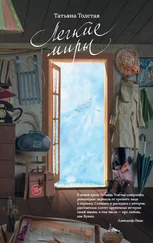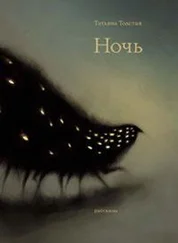Up there, up north, is the boundary of the habitable world, and beyond that the kingdom of darkness; from there the Arctic air comes down in massive blocks and hangs in the dark above our uncovered, or perhaps bundled-up, heads, while stars piercingly shine down through an icy lens, prickling our eyes.
—
Americans don’t seem to wear hats—perhaps they are waiting for their ears to fall off from the cold? I’ve seen them wear gloves, scarves, sure, but not hats. Perhaps they feel that it looks weak to wear them, unless, maybe, one has gone to Moscow’s Red Square and bought one of those Chinese-made polyester ushanka s with earflaps and a red star; then they expect all Russian hearts to melt at the sight of them. Eric is no exception: in order to get closer to my heart, unreadable by means of his cultural codes, he tried wearing an Uzbek doppa —a square, pointed hat—only his was embroidered with beads and pink paillettes. This reminded me of Maksim Gorky when he was terminally ill. I banned it.
Me, I swaddle my head in a warm scarf to ward off meningitis, arachnoiditis, and trigeminal neuralgia; I’ve forbidden Eric to call this scarf a “babushka” with the erroneous stress on the u. I’ve already weaned him off saying “borscht” instead of “borsch” and likewise explained to him that in Russian, as opposed to Yiddish, there are no “blintzes” but only “blinis,” no “schav” but only green “shchi,” also known as sorrel soup. I know I’m disseminating useless knowledge. I’ll leave, and he’ll go back to his erring ways, his linguistic and cultural poverty. He’ll go back to adding cumin and star anise to buckwheat, to making salad with cold farfalle pasta, red caviar, and sesame oil. Driven by his unbridled imagination, he’ll make a heap of something awful and ridiculous from mushrooms or beef.
Rice, I’d bet, he could do well. Rice is rice, a basic, simple thing, no need to invent anything. Some things should be simple and clear. You don’t need to add anything to it—let it stay pure and unchanged, as it’s been for thousands of years.
—
“Eric, how do the Pu Pèo say ‘rice’?”
“Tsa.”
§
This town, to which I’ll never return, is small, so everyone sees everything. Even if you don’t know someone, they know you. Students are the majority here, and of course they know their instructors’ faces. There is virtually no place where Eric and I can be alone. Sometimes, when we manage to see each other in some coffee shop while his wife, Emma, is teaching, we don’t even get to talk: too many acquaintances around. I know how watchful they are of other people’s affairs—I myself have gossiped with them about this one and those two. Eric is scared of Emma. And so he sits in a far corner, looking past me staring at the wall or at his cup. I respond in kind. I get heart palpitations. Don’t know what he gets.
Emma is a beautiful, high-strung woman with long hair and anxious eyes stretching back to her temples. She teaches something artsy and can make anything and everything imaginable with her hands. She sews complex blue quilts covered with the delirious stars of otherworldly skies, weaves beaded shawls, and knits thick, puffy white coats resembling snowy hills. She hand-makes lemon and vanilla soap and other such things, conjuring up acute jealousy in women and fear and bewilderment in men. She orders emerald- and tree-bark-hued cowhides from special designer catalogs and from them makes little boxes with silver inserts—I bought one myself at a local shop, not knowing that it was made by Emma.
She’s a real woman, unlike me; she’s a goddess of the hearth and a protector of all arts and crafts, not to mention that she volunteers at the student theater, designing and painting sets for plays that her students produce. She suspects that while she’s painting those sets Eric isn’t sitting around his office but circling the town trying to run into me—accidentally, inadvertently, unintentionally. Emma is a witch and she wishes me ill. Or maybe it just seems that way to me.
Due to the fact that we are often unable to speak, Eric and I have developed an ability to read each other’s thoughts. It’s not terribly difficult, but of course it results in many mistakes, and our limited vocabulary comes down mostly to the nitty-gritty: Later. Yes. Not now. Me too. No. I’ll get in the car and drive—follow me.
—
We tried meeting in another town, fifteen miles away from ours, where, at the edge of human settlement, we scouted a quiet inn surrounded by snowbanks but at the last minute, almost on the threshold, we ran away in fear: through a lit window and its little lace curtains we spotted two professors from our college, two married ladies—who would have thunk it?—kissing and embracing quite unambiguously over a cup of coffee in the cozy bar draped with premature Christmas lights.
Sure, we could have wandered in saucily from the cold and resolved our mutual awkwardness with a jovial cackle: Ha-ha-ha! You too? But Eric is timid and considerate. Me, not so much, but he’s the one who lives here and I’m leaving and never coming back.
I couldn’t have brought him back to my place: I lived at the campus hotel for homeless professors. It was cheap, but splendid and mysterious, like a haunted house. Back in the 1930s, some wealthy patron of the college donated this house when she inexplicably found she had no more use for it. The building was surrounded by the world’s fluffiest snowbanks; the rooms were so overheated that everyone kept their windows open regardless of the weather; and the beds were so narrow that one would fall off of them without fail, even while sleeping on one’s back and at attention, like a soldier in formation, there being no other godly way to sleep on them. The rooms also had odious little low armchairs, with legs like a dachshund’s. There was no smoking allowed, but of course everyone smoked while hanging out the window. No, this was wholly unsuitable for a clandestine rendezvous.
Theoretically, we could have risked meeting at Eric’s place while Emma was teaching or set-designing, but I feared it wouldn’t end well: there have been times in my life when I was scared to death—or conversely, to laughter—and when it was necessary to urgently hide in the closet or under the bed. Emma may have been a mind reader, too; I could see it in her eyes. Having caught us, she would have given chase, pursuing us through the snow, over the treetops, through the dark blue night, leaving her students behind.
Emma, you see, had a third eye, clearly visible when she was lit from the side, when it pulsated under her thin skin. When she would turn her head in alarm, it picked up my thoughts, like a radar detector. I felt it whenever she and Eric hosted one of their get-togethers for colleagues, which had become a weekly thing. I kept attending these by default. Not coming would certainly have aroused her suspicions. At these parties Emma would read my thoughts, watching me with her subcutaneous, still-unhatched third eye, as she filled with hate.
To ward off this evil eye, I bought an amulet at a local antique shop. In our little town there were many such shops with all kinds of delightful thingamajigs, from old license plates to empty glass perfume bottles. Tin watering cans; porcelain kitties; dishes, washbowls, and chests of drawers. Lifeless corsets, for women with small breasts and unimaginably tiny waists; hopelessly rumpled lace parasols, for a sun that had set and stopped shining long ago. Faded enamel jewelry, old magazines, and patterned ice trays.
The charm jumped out at me right away from where it lay, between a silver jewelry box and a Victorian lorgnette. It was a small mano fico, a real amulet, a thing of power—it was unclear how it had got there and why no one had purchased it yet. The shop owner hadn’t picked up on its value and meaning, and so, luckily, it didn’t cost me that much. I took it to a jewelry store to have a little loop soldered to it, and I also bought a silver chain for it.
Читать дальше






